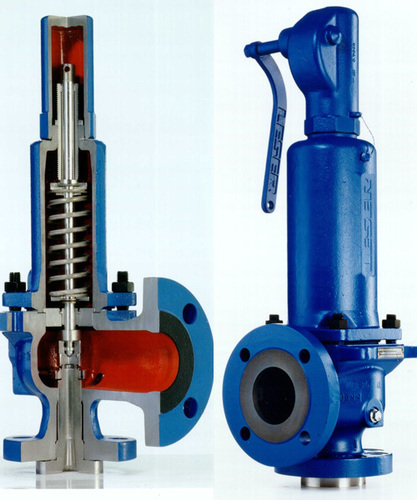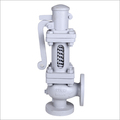IBR Safety Valves
Product Details:
- Product Type BOILER MOUNTING AND IBR VALVES
- Condition New
- Fuel Type Other
- Color SILVER
- Output Steam
- Style Horizontal
- Pressure High Pressure
- Click to View more
IBR Safety Valves Price And Quantity
- 20 Number
IBR Safety Valves Product Specifications
- Steam
- SILVER
- Horizontal
- High Pressure
- BOILER MOUNTING AND IBR VALVES
- New
- Other
IBR Safety Valves Trade Information
- 20 Number Per Day
- 1 Week
- No
- Contact us for information regarding our sample policy
- Carton Boxes, Wooden Box
- Gujarat
- ISO Certified
Product Description
The Indian Boiler Regulations (IBR) are regulations governing the design, construction, and operation of boilers in India. These regulations are formulated to ensure the safety of boiler systems and protect human life, property, and the environment.
A safety valve is a critical component in a boiler system. Its primary function is to release excess pressure to prevent a boiler from over pressurizing, which could lead to a catastrophic failure. The safety valve is a crucial part of the overall safety mechanism designed to protect the boiler and its surroundings.
Here are some key points regarding IBR boiler safety valves:
-
Compliance: IBR-compliant boilers must have safety valves installed to meet the regulatory standards.
-
Functionality: Safety valves are designed to open and discharge steam when the pressure inside the boiler exceeds the preset limit. This helps prevent excessive pressure buildup.
-
Pressure Setting: The safety valve is set to open at a specific pressure to ensure that the boiler operates within safe limits. Regular testing and calibration are essential to maintaining the valve's accuracy.
-
Installation and Maintenance: Proper installation and regular maintenance of safety valves are crucial. These valves should be inspected, tested, and serviced according to the manufacturer's guidelines and regulatory requirements.
-
Documentation: For IBR compliance, it's essential to maintain proper documentation related to the safety valves, including records of inspections, tests, and any maintenance performed.
-
Certification: Safety valves used in IBR-compliant boilers should meet relevant certification standards and carry the necessary approvals.
It's important to note that specific details may vary depending on the type of boiler and the applicable regulations in your region. Always consult the relevant standards and guidelines, and consider seeking assistance from qualified professionals to ensure compliance and safety in boiler operations.

Price:
- 50
- 100
- 200
- 250
- 500
- 1000+
 English
English Spanish
Spanish French
French German
German Italian
Italian Chinese (Simplified)
Chinese (Simplified) Japanese
Japanese Korean
Korean Arabic
Arabic Portuguese
Portuguese





